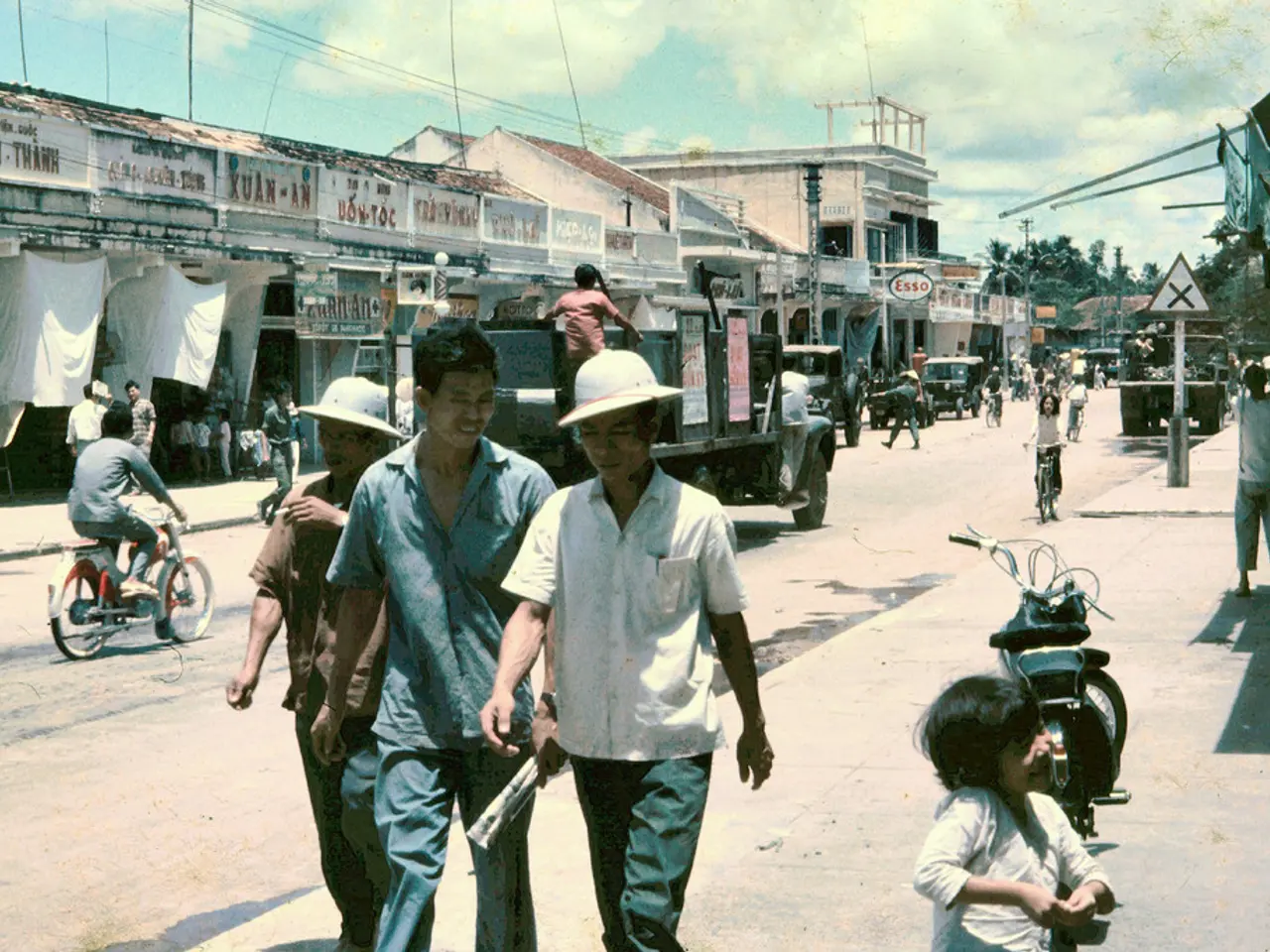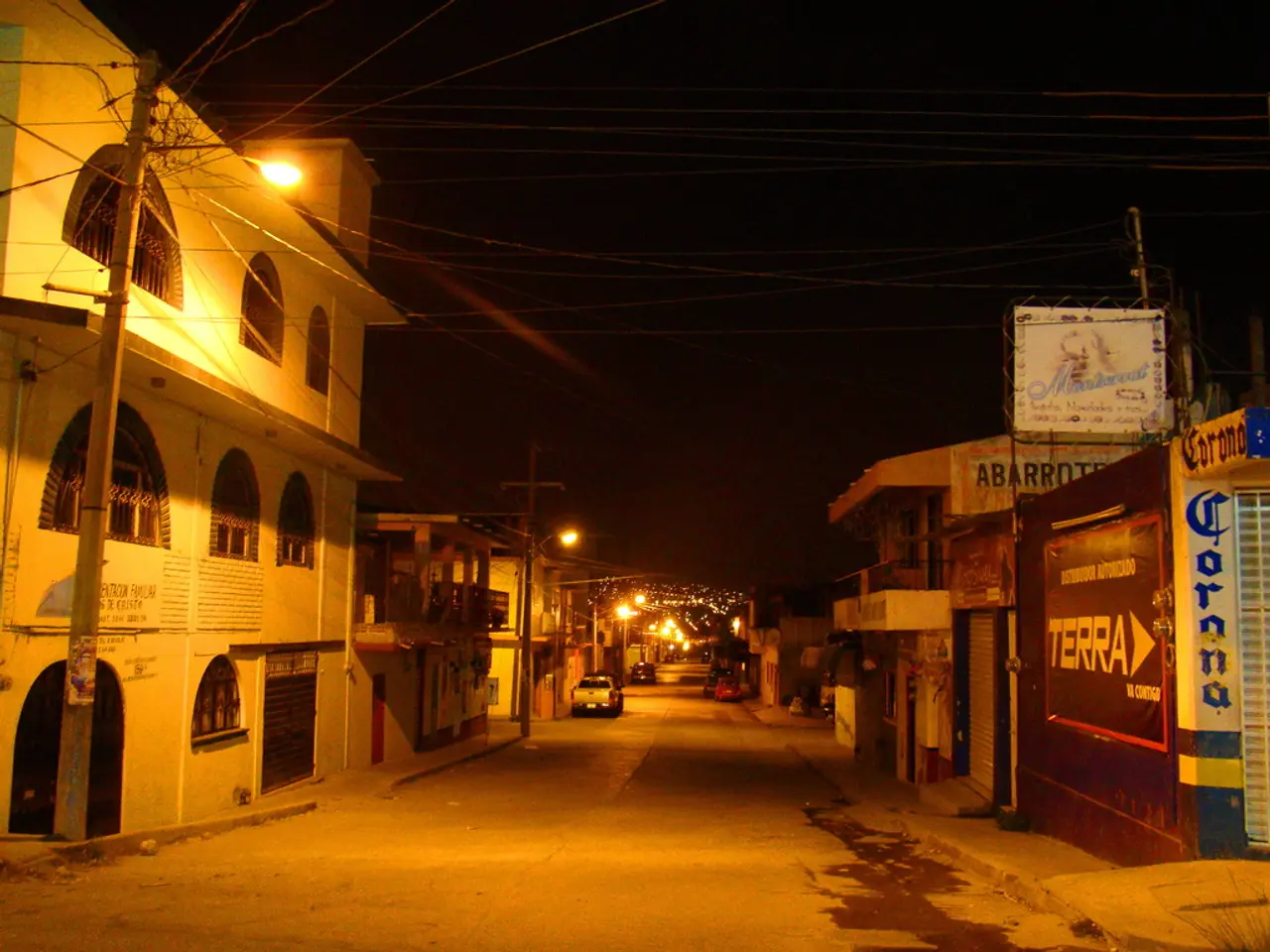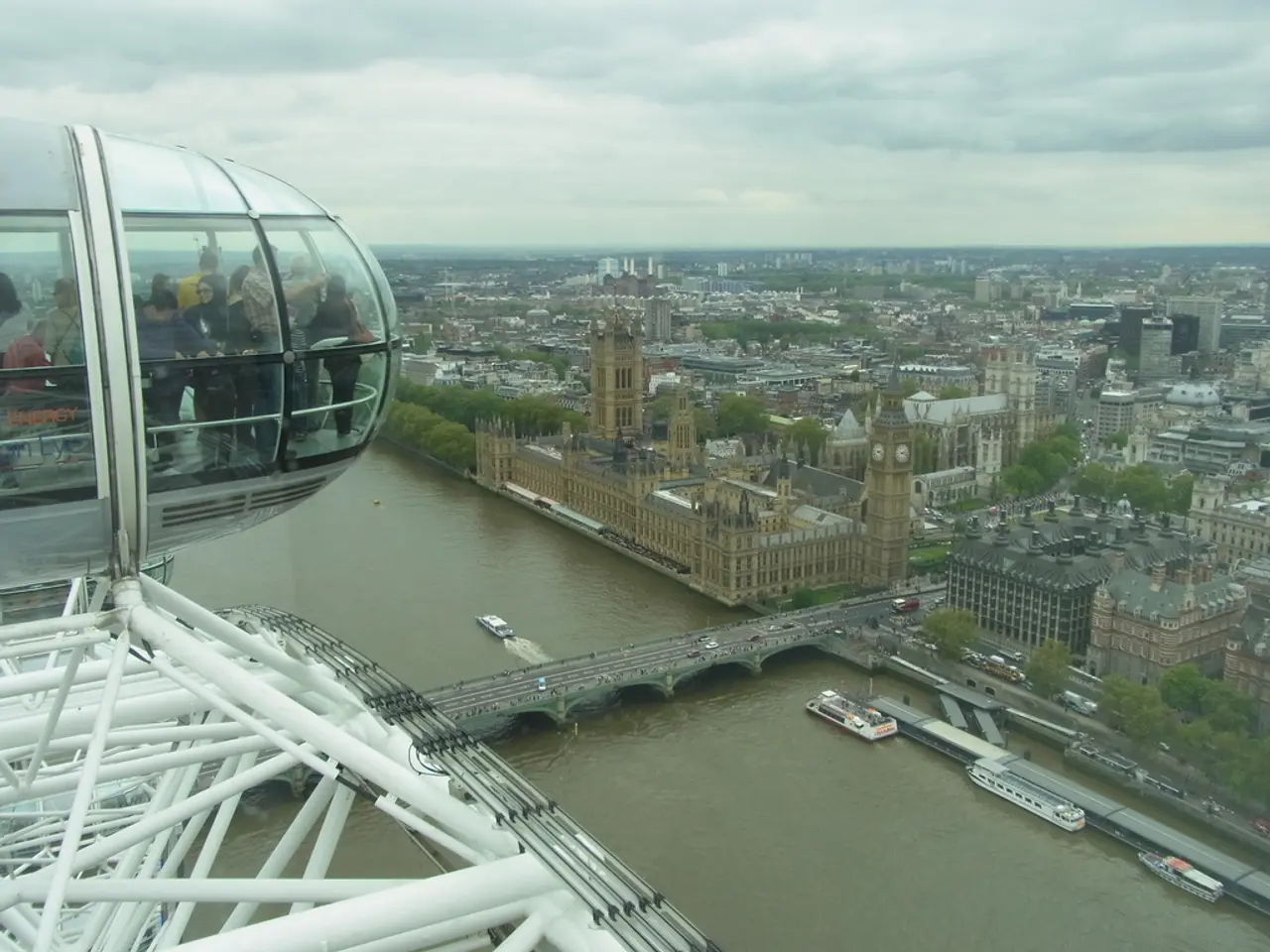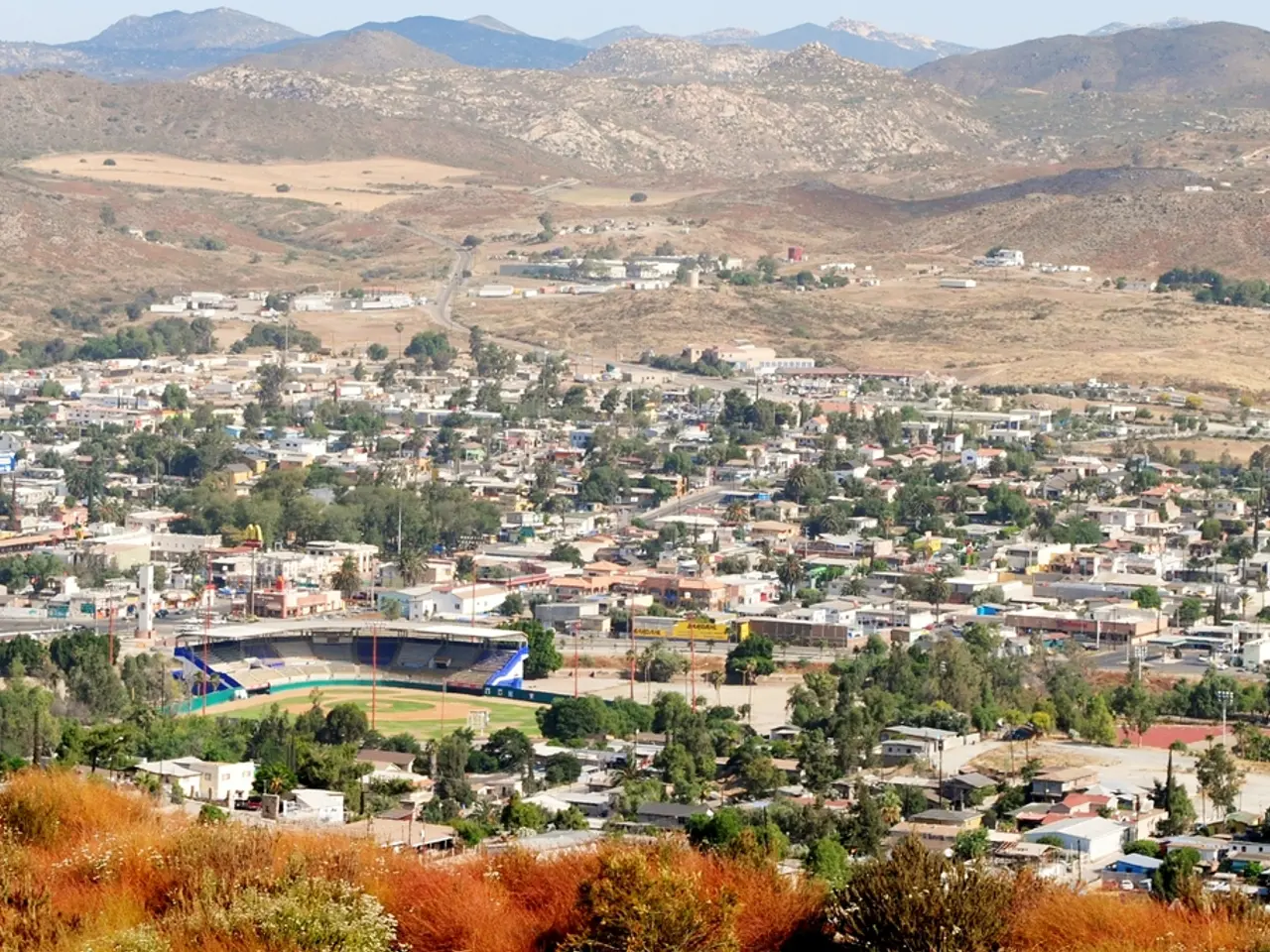Delaying Californian Transit Projects due to Permissive Regulations and Approvals
California Transit Projects Face Delays Due to Permitting Challenges, Report Suggests
A new report by San Diego nonprofit Circulate San Diego has highlighted the challenges faced by California's transit projects due to complex permitting requirements. The report, titled "The Powerless Brokers: Why California Can't Build Transit," suggests that these requirements have created bureaucratic obstacles that hinder public transit construction.
The report focuses on the extension project for the D Line (formerly Purple Line) in Los Angeles, specifically the project underneath Wilshire Boulevard, which is facing initial permitting challenges over demands by the DWP and the Bureau of Engineering. Similarly, disagreements between the high-speed rail authority and city officials have led to years-long delays and increased costs, as seen in Wasco.
These permitting challenges first arose decades ago as protections against disruptive infrastructure projects but have now become obstacles that hinder public transit construction. The report states that third-party permitting requirements significantly delay California's transit projects by necessitating approvals from multiple local governments, special districts, state agencies, and utilities, each with their own processes and standards. This leads to increased costs and prolonged timelines, even for projects already approved by voters or elected officials.
To reduce such delays, the report proposes several key solutions. These include reassigning permitting authority from third parties directly to transit agencies, incentivizing local governments to prioritize transit projects, extending exemptions under the California Environmental Quality Act (CEQA) for sustainable transportation projects, and encouraging greater leadership and regulatory involvement from Caltrans (California Department of Transportation).
Legislative efforts like California Senate Bill 445 (2025) aim to develop internal regulations for local agency permits, cooperative agreements, and utility coordination specifically for the high-speed rail project to reduce unnecessary delays.
State Sen. Scott Wiener (D-San Francisco) has introduced a bill that takes a similar approach, focusing on high-speed rail, with time limits on third parties' approval and denial processes. The bill aims to streamline the approval process, reducing delays and costs associated with permitting.
The report does not advocate for a return to the days of someone like Robert Moses, who shaped U.S. cities' infrastructure projects and whose highway and bridge projects razed city blocks and neighborhoods. Instead, it believes that today's requirements have created new obstacles.
The high-speed rail project in California has been heavily scrutinized for its long delays and rising budget. The Trump administration has pulled federal funding from the project, blaming state leadership and the high-speed rail authority.
Community advocates pushed for laws to establish environmental standards and regulate project approval so that affected communities could be represented in decision-making. However, the report suggests that these regulations have contributed to the long delays in California's transit projects.
In summary, the report highlights the challenges faced by California's transit projects due to complex permitting requirements. The proposed solutions aim to streamline the approval process, reducing delays and costs associated with permitting, and making transit construction more efficient and predictable.
- The complex permitting requirements in California are causing delays for transit projects, according to a report by Circulate San Diego.
- The D Line extension project in Los Angeles is facing initial permitting challenges due to demands by the DWP and the Bureau of Engineering.
- Disagreements between the high-speed rail authority and city officials have resulted in years-long delays and increased costs for projects, such as the one in Wasco.
- The report suggests that third-party permitting requirements are significant delays for California's transit projects, requiring approvals from multiple local governments, special districts, state agencies, and utilities.
- To reduce such delays, solutions proposed in the report include reassigning permitting authority to transit agencies, incentivizing local governments to prioritize transit projects, and encouraging greater leadership and regulatory involvement from Caltrans.
- Legislative efforts like California Senate Bill 445 aim to develop internal regulations for high-speed rail project permits to reduce unnecessary delays.
- Community advocates pushed for environmental standards and project approval laws to ensure affected communities were represented, but the report suggests these regulations have contributed to the long delays in California's transit projects.




